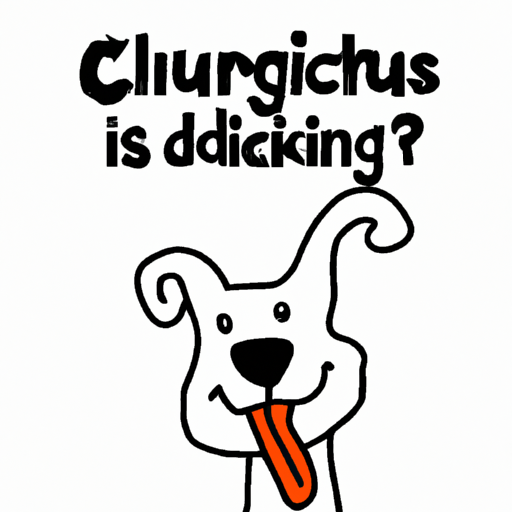Understanding Your Dog’s Behavior
As a caregiver, you may have noticed your dog displaying an unusual behavior: licking inside your ears. This might seem strange to you, but from a canine perspective, it’s perfectly normal. Dogs use their tongues for a variety of tasks, from grooming themselves to showing affection.
However, ear licking is more than just a sign of love. It’s also a way for dogs to communicate, explore their environment, and even diagnose health issues. Here are some reasons why your dog might be giving your ears a thorough cleaning:
-
Affection: Dogs often lick to show affection. Just as you might give a loved one a warm hug or a gentle pat on the back, your dog uses their tongue to express their love and fondness for you.
-
Submissiveness: In the canine world, licking is a sign of submissiveness. By licking your ears, your dog is acknowledging your dominance and their position in the family hierarchy.
-
Curiosity: Dogs use their tongues to explore the world. Your ears, with their unique smells and tastes, are a treasure trove of sensory information for your curious pup.
The Science Behind Canine Licking Behavior
Canine behaviorists have studied this phenomenon in depth, and they’ve found some interesting insights. Dogs have a highly developed sense of taste and smell. Their tongues and noses are equipped with millions of sensory cells that allow them to detect even the slightest changes in their environment.
When a dog licks your ear, they’re not just giving you a wet, sloppy kiss. They’re also collecting a wealth of information about your health and wellbeing. Here’s what your dog might be picking up on:
- Changes in your body chemistry
- Changes in your emotional state
- Potential health issues
Health Implications of Ear Licking
While this behavior may seem harmless, it can actually pose a risk to your dog’s health. The human ear is a breeding ground for bacteria, and dogs who lick ears are at risk of developing infections.
| Potential Risks | Symptoms |
|---|---|
| Ear Infections | Redness, swelling, discharge |
| Oral Infections | Bad breath, changes in eating habits |
| Parasites | Itching, irritation, hair loss |
If you notice any of these symptoms, it’s important to consult with a veterinarian.
How to Discourage Ear Licking
If you’re uncomfortable with your dog’s ear licking habit, there are steps you can take to discourage it.
- Redirect their attention with a toy or treat
- Say “no” in a firm, but gentle voice
- Reward them for obeying your commands
Remember, it’s important to be patient and consistent. Changing a dog’s behavior takes time, so don’t get discouraged if your dog doesn’t respond immediately.
Frequently Asked Questions
Why does my dog lick my ears when I’m sick?
Dogs can pick up on changes in your body chemistry when you’re not feeling well. Your dog may be trying to comfort you or find out more about what’s wrong.
Is it harmful for my dog to lick my ears?
While it’s not typically harmful, there is a risk of infection if your dog frequently licks your ears. If you notice any signs of infection, consult with a veterinarian.
How can I stop my dog from licking my ears?
Try redirecting their attention with a toy or treat, issuing a firm but gentle command, or rewarding them for following your instructions.



